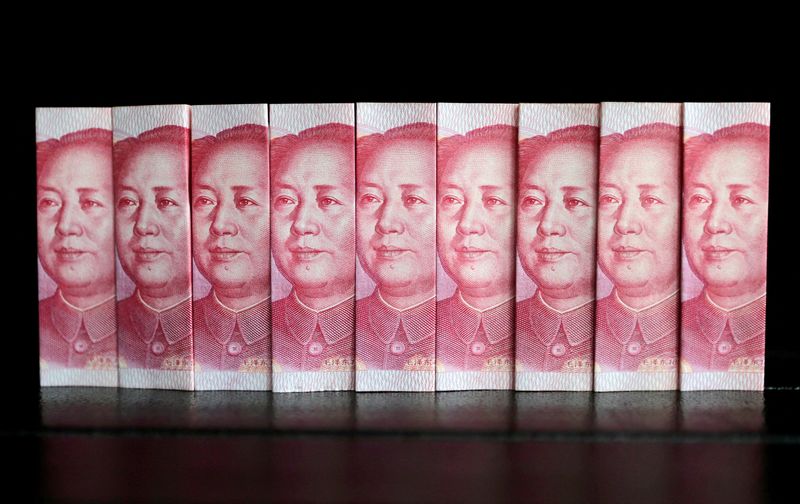SHANGHAI/BEIJING (Reuters) - China's major state-owned banks were active in onshore and offshore foreign exchange markets this week trying to contain the yuan's slide, four people with direct knowledge of the matter said.
The state banks were seen swapping yuan for U.S. dollars in the onshore swap market before quickly selling those dollars in the spot market to support the yuan from Wednesday to Friday, two of the sources said.
The big banks were also curtailing their lending in offshore yuan markets on Friday with the aim of keeping liquidity tight, other two sources said, in a move that could raise the cost of shorting the Chinese currency.
The sources declined to be identified because they were not authorised to speak publicly about market trades.
The overnight CNH Hong Kong Interbank Offered Rate benchmark (CNH HIBOR), a gauge that measures the yuan's borrowing cost in the financial hub, jumped to 3.3562% on Friday, its highest since Dec. 19.
The state bank actions come as the Chinese yuan faces renewed downside pressure against a globally resurgent U.S. dollar. The yuan has fallen to a three-week low against the dollar.
Increasing market expectations of an interest rate cut in the world's second-largest economy are also weighing down the local currency. The onshore yuan last traded at 7.1682 per dollar.

Chinese state-owned banks usually trade on behalf of the nation's central bank in the foreign exchange market, but they could also trade on their own behalf.
In recent months, China has sought to stabilise the yuan by orchestrating buying by state banks and giving market guidance to bankers, Reuters reported last week.